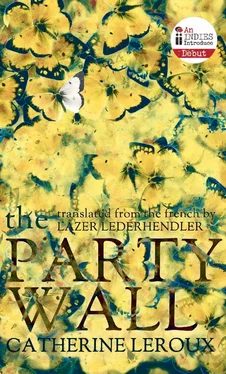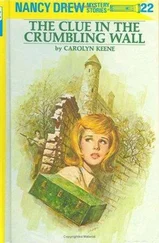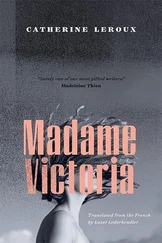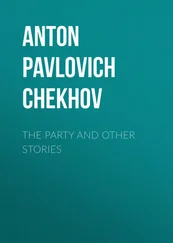“You know,” Yun continues sheepishly, “if you don’t approve of the sailing trip we’ve planned, we could always change our plans.”
“It’s not my place to approve. There’s nothing wrong with the plan as such. Actually, it’s a lovely idea. You’re free, the two of you. Completely free.”
“Yes. But Édouard’s health comes first. His health and his family.”
“We’ll see. We’ll see in sixty days.”
Using her fingernail to whittle down the rim of a disposable cup, Yun adds in a low voice:
“He loves you more than you think.”
Styrofoam particles pile up like a little snow bank at their feet. A muffled warmth stirs in Madeleine’s belly and spreads to each of her limbs. She is filled with peace. Her son is safe and sound — now she is sure of it.
An hour later, the woman who performed the operation comes out to meet them and to confirm that the transplant was successful. Édouard is taken to the recovery room, and Madeleine and Yun spring up in unison, a modest honour guard for a patient they cherish with equal strength, from source to estuary.
The man in the photo appears to be some thirty years younger than Joanna. His teeth are so white one might suspect they glow in the dark. He smiles warmly on the arm of the bride. Both are dressed in white and surrounded by musicians with instruments as close to agriculture as they are to music, such is their resemblance to dried fruits and hollowed out vegetables.
“He is very handsome,” Madeleine says.
“At his age, all men are handsome,” Joanna adds.
Madeleine gives her an amused look. The evening settles in lazily; the scent of the sea is everywhere. Édouard is asleep. This is the first time since he was discharged that the household can catch its breath. His ten days in the hospital were exhausting for Madeleine and Yun, who took turns at his bedside. On returning from Halifax they had to rearrange the house, set up a bedroom on the ground floor, learn to manage the medication, accompany Édouard when he moved about, and clean the wound shaped like a half-moon. Joanna’s help in carrying out these tasks proved invaluable. Given her high spirits and Yun’s gentleness, Madeleine senses that the healing will go quickly. The kidney is holding up, and in the surgeon’s opinion it’s working as if it had always been a member of the family. Only the cat is showing signs of flagging, as it spends the greater part of its days sleeping under the armchairs.
Sitting on the front porch steps, the two women drink beer while Joanna recounts her adventures. Married to a young Cameroonian for the past five years, she displays such cheerful clear-sightedness that it is impossible for Madeleine to make the slightest judgment about this bizarre union. The couple spends scarcely a few weeks together once a year, after which they are “free as the air.”
“Of course I’m aware of what people think: that in his eyes I’m just a wallet or a visa for Europe. What would a handsome young man be doing with a woman in her sixties? But he’s a good man, and marrying him has made me happy.”
Madeleine puts back the photograph while Joanna grabs one of Micha and her on their wedding day, a picture she agreed to take out of an album that she never opens anymore. She steals a glance at their earnest expressions, their hands locked together. That they were so madly in love early on seems odd to her today, as when you discover an old dress, now too small, and can’t believe your body could ever have slipped into it. Joanna pores over the portrait trying to extract from it some vital element, to understand the couple and the times portrayed.
“Your husband had a hard life,” she declares.
In the sky’s fading light Madeleine makes out the pointed movement of a kite, probably a kilometre from her house but high enough to remain visible. Then, for the first time, she dares to share with someone what she held close to her chest for so many years, the secrets that Micha had confided to her on the eve of their wedding, saying, “Now you know everything; you’re free to change your mind.” The rape of his mother and sister before his eyes, the murder of his brothers, his own rebellion at the age of sixteen, when he left the tomb of his people and took up arms to kill and rape in his turn, to spit back at war what war had forced him to swallow. Madeleine had listened to the man pouring out his story, coldly, disappointedly, sadly, but unrepentantly, and she had chosen to disregard those revelations.
“I still don’t know how I was able to go on loving him so, given everything he had done.”
With the round hard edge of her fingernail, Joanna strokes the photographed faces of the young newlyweds, first one and then the other.
“You behaved like half the inhabitants of the planet. Not everyone has the luxury of growing up in peacetime. The conscience of most people who have lived through war is like your husband’s. It’s…”
The Dutch woman fumbles for words, sifting through her French to pinpoint a synonym that isn’t there.
“It’s a terrible conscience. Victims and executioners often coexist in the same person. Those who forgive them are the ones who enable the world to heal.”
Madeleine takes back the photo in which her face and Micha’s are slowly fading.
“I have never found a way of telling all this to Édouard.”
“Now you have the time.”
The two women finish their beers without speaking, while the wind gets caught in the red-tinted hair and the cotton skirts. The sky has darkened but Madeleine thinks she can still distinguish the kite, pulling on its leash like a dog, hoping, like every sail in the world, to be allowed at last to fly away for good.
Édouard’s steps are surer, his movements sturdier. It isn’t so much his gait as the fact he looks at the sky, the trees, and places his hands on tree stumps. As if he were coming out of himself after staying rolled up in a ball, a clenched fist, so that no energy whatsoever might escape. Madeleine is waiting for him beside a freshly dug hole. In an old shredded blanket lies Shabby the cat. He did not survive the heat wave or the commotion in the house or simply his eighteenth year in this world. Hugging the small, expired body one last time, Madeleine wept, but she could not help thinking that it had come at the right moment. Édouard gently lays the departed at the bottom of the hole and then, holding his shovel, straightens up.
“The first time I travelled by train, I couldn’t sleep for the first three or four days. I couldn’t get used to the rocking, the noise of the cars, the wind. And going through remote areas that were completely uninhabited, I had the sensation of being the first man ever to have set foot there, and the thought obsessed me, kept me from closing my eyes. After a few days, of course, my body gave out. I fell asleep somewhere near Reno. When I woke up it was dawn. I looked around and I thought the train was sliding over water. We were on the track that splits the Great Salt Lake exactly in two. Because of the railroad ballast, the lake is divided in half, and the composition of the water isn’t the same in both halves. The northern side is full of wine-red algae, but on the southern side it’s green. The clouds were perfectly mirrored on the surface and took on the colours of the lake. The train rolled along slowly. The air was warm and soft. There was no sound; it was as if the universe had come to a standstill. Right then, I had the feeling that I would never again be hungry or cold or in pain or afraid.”
Édouard deftly throws a handful of earth on the cat’s body.
“That’s what I wish for him, for your Shabby. That’s what I wished for Dad. That’s what I wish for every one of us.”
Copying her son, Madeleine pours a little earth on her pet, the earth he was so fond of. Édouard picks up the shovel and calmly fills the grave, with his braid keeping time on his lower back. Madeleine is impressed by the sureness of his movements. She thinks about the organ that continues to bond to him, generating day after day new connections with the body to which it now belongs; she thinks about this piece of another human being, which is keeping her son alive.
Читать дальше











